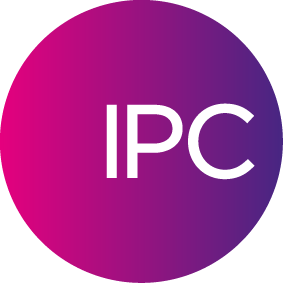By Vangelis Tsianaxis, Head of Consulting, IPC
We had a very interesting couple of days at IDX (International Derivatives Expo) 2018 in London last week, getting an opportunity to hear from key market participants, regulators, policymakers, and innovators on the state of affairs for derivatives and the direction of flight for the entire market globally.
Key themes from seminars and discussions during these two days included:
- Trading market growth – focus on Chinese market
- Further venue consolidation expected, although not in Asia
- Regulatory drive towards further transparency – EU overreach
- FinTech innovation – focus on language processing and analytics
- Diversity and Inclusion – ensuring you have the right people in your business
Market growth and venue consolidation
China and the opening of that market to derivatives generates a lot of excitement for growth as well as a lot of challenges. Market participants want to get their hands on the significant assets in the Chinese market to generate growth; however, challenges remain with accessing the market across all aspects of the trade lifecycle from order to execution, settlement, and clearing. Chinese regulators are making steps towards opening up the market and the opportunities are there for the taking. It is key to ensure access to the right connectivity to manage clients’ relationships in a market that differs culturally and structurally, as well as to manage the practicalities of liquidity in a very fragmented Asian market. Solutions are emerging for connectivity as well as other challenges in the trade lifecycle such as fund movement for clearance and settlement and market players can take advantage of these opportunities.
Nevertheless, managing liquidity in the Asian market will not become as straightforward as in other parts of the world, in part because of the number of venues. The landscape will remain fragmented for a number of reasons—political, regulatory, etc.; therefore, it is important to focus on connections and the knowledge and understanding to manage underlying currents in the various markets. In simple terms: get on the phone, talk to the markets.
Regulatory change
The EU Commission and Parliament seem determined to continue the drive for further transparency in the market based on their Eurozone-centric view of the world. There is a drive to impose further oversight of CCPs outside the EMU through reporting requirements for third country firms. Obviously these requirements will mainly have an impact in the US and the UK post-Brexit. While the drive for more transparency makes sense in principle, some of the rhetoric around imposing rules on third countries and making equivalence requirements essentially a political decision make for uncomfortable reading, particularly for the CFTC/Fed and the Bank of England/FCA. The state of geopolitical affairs on the UK and US side is creating a sense of raising barriers across the global markets on all sides.
FinTech
Innovation in FinTech remains strong, with many entrants to the market focusing on creating opportunities to use data generated by processing natural language or speech to text, and on integrating that data (either structured or unstructured) into trading process flows. It is exciting to see the opportunities to create effective and efficient processing of valuable interactions with clients by complimenting voice or other written communications with value-added data. These opportunities can generate actual deliverables for the trading lifecycle such as automated regulatory reporting or research or clearing instructions. These innovations will hopefully lessen the trend to restrict any activities of trading outside fully electronic processes, which have been based on a risk-averse view of using communications across the trading cycle. The opportunity remains to be in the market, talk to your clients, make a difference through your relationships, and tap into liquidity where algos and automation cannot go.
Diversity and Inclusion
Finally it was very exciting to see how strong a priority Diversity and Inclusion (D&I) has become in the industry, as this came up as a central point of discussion across several seminars and talks. The point made by many is clear: Focus on getting a diverse and inclusive culture and individuals within your business coupled with technology skills — or get left behind. The challenge of innovating at a pace driven by individuals who can make a difference makes the case for D&I straightforward. Of course, the challenge of achieving this type of cultural change is not easy, and I am glad to see that IPC Systems has also made D&I a priority in a timely manner!
© 2018 IPC Systems, Inc. All Rights Reserved. The contents of this publication are intended for general information purposes only and should not be construed as legal or regulatory advice.

